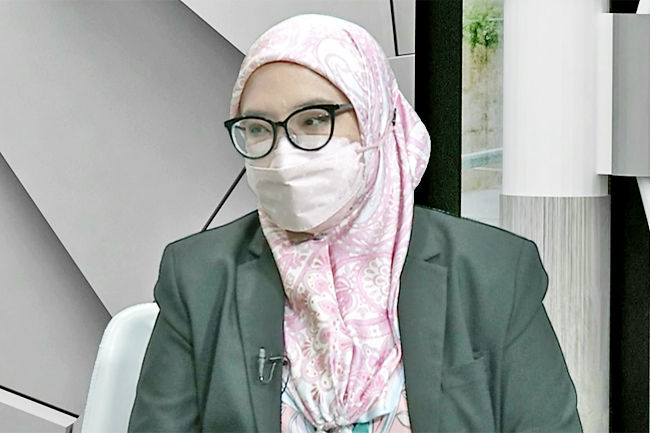Izah Azahari
The Ministry of Health (MoH) continues to encourage the public to get vaccinated against COVID-19 as the Omicron variant is known to be able to evade detection by the immune system.
This was said by Infectious Disease Consultant at the MoH Dr Hajah Riamiza Natalie binti Haji Momin during the ‘Life in the Endemic Phase’ programme on Radio Television Brunei (RTB) yesterday.
Since the onset of COVID-19, the Omicron variant has replaced Delta as the dominant variant in the Sultanate.
Dr Hajah Riamiza Natalie said every virus has the ability to change its structure through mutation, resulting in the emergence of a new variant.
“Most of the COVID-19 variants detected do not actually have much impact on the nature or effect of the virus. However, sometimes there are many mutations that cause changes in the nature of the virus. When it happens, the result is called a variant of concern (VOC),” she said.

“Delta was VOC last year. However, Omicron was generated by 32 mutations to its protein; since its first detection at the end of 2021, it has overtaken Delta as the dominant variant.”
Dr Hajah Riamiza Natalie said new variants need to be examined to see if they are more transmissible than the previous ones; whether they cause more severe symptoms; whether they are able to escape immunity from previous infection or protection from vaccines; and whether the treatment and measures implemented are less effective, including medication.
“The Omicron variant is different from Delta as it spreads quickly. In terms of symptoms, it is not as severe as Delta,” said the consultant, adding that the MoH is constantly monitoring existing and new variants.
Meanwhile, Dr Hajah Riamiza Natalie shared that the MoH is confident with the use of antigen rapid test (ART) kit as the primary COVID-19 screening method, in line with the international practice.
Among the advantages of ART kit, she said, are its ability to detect COVID-19 when a person is infectious; allowing a person to carry out self-testing without a specific processing device; and providing quick results.
“The PCR (polymerase chain reaction) test is a bit more complex as it requires a lot of processing time. However it can detect remnants of the virus that are no longer infectious,” she said, adding that a person may be found positive via PCR test long after they have recovered from coronavirus and are no longer contagious.



















































